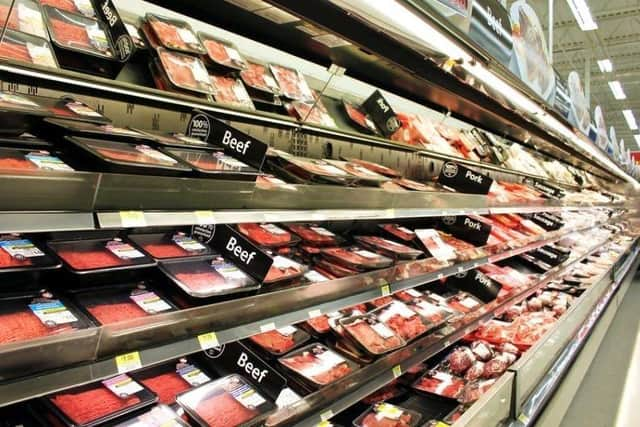Why is food price inflation worse here than most of EU?
and live on Freeview channel 276
That is a single word children are really good at asking why, expanded to why should that be. This strikes fear into the heart of any interviewee seeking free rein to pontificate.
This week we had claims that food price inflation was falling. It isnow 12 per cent, which while it may be below the peak is still anenormous figure driving a cost of living crisis across the UK. In all the coverage there was a reluctance to ask some obvious ‘why’questions. Why is food price inflation worse here than in most eurozone countries. More significantly why is it so high when prices paid to farmers are not only falling, but at levels causing cash flow problems across all enterprises. The other issue is why this is happening when the United Nations Food and Agriculture Organisation (FAO) global food price index for August was down again. This was led by the key supermarket commodities dairy, meat, grain and vegetable oils. These reductions are now a well established trend now, with prices falling for the past eight or nine months. Dairy prices alone are now 22 per cent below their March 2022 peak. Farmers are well aware of this reality, but consumers still find that hard to believe when they look at what is happening on supermarket shelves.
Advertisement
Advertisement
It is a fact of economic life that when markets come down, prices to consumers fall more slowly than is the case when markets rise. This is because there is less incentive to respond. Processors and retailers are carrying higher costs, not least for wages, but so too are farmers and they are being forced to accept lower prices that are squeezing cash flows. This is not fair, but after a brief period of reasonable prices this is a return to farmers being price takers rather than price makers. It would be interesting to hear politicians, normally ready to pontificate on any subject for publicity, questioning why this is happening. They could link this to a wider debate on food security and the importance of the UK having a strong food producing farming industry. You would be unwise to hold your breath waiting for this to happen. Instead we will continue to have a wringing of hands and a failure to ask that simple word, why.


EU member state farm ministers, meeting for an informal farm council under the Spanish presidency, have given broad support to novel genomic techniques (NGTs) in agriculture. This is the term in Europe for what is known elsewhere as gene editing. Support was secured by linking this to the need for action on climate change mitigation and the environment without any risk to food security. There is still a lengthy road to secure legislation, especially around issues such as labelling, organic food and the protection of patent rights. However the EU is now firmly on the same road as the UK towards embracing and using this science. Ironically climate change was the theme of the farm council, which came close to having to be cancelled because of extreme weather and flash floods in Spain. The EU is using the phrase “new technologies for a more sustainable agriculture” to win over opposition to NGTs. Meanwhile, in what should prove a boost for agricultural research, the UK has agreed to fully re-join the EU Horizon research programme. This will pave the way for more formal cooperation in science between the UK and EU member states.
The close to green light for the development of NGTs in the EU has been welcomed by the major farming and food lobby organisations. COPA, the umbrella body for EU farm unions, has urged rapid progress, claiming this will allow Europe to remain globally competitive. It claims the technology can deliver the goal of producing more and better at a reduced cost to the environment and to the benefit of farming sustainability. Individual organisations representing different sectors have also welcomed the thinking and urged the Commission to make sureprogress is maintained as legislation is developed. CEJA, representing young farmers, has said the EU must embrace all available technology to ensure a successful future for the next generation in agriculture. With all the major players on the same hymn sheet Brussels must make sure progress is not thwarted by the anti-science wing of the green lobby.